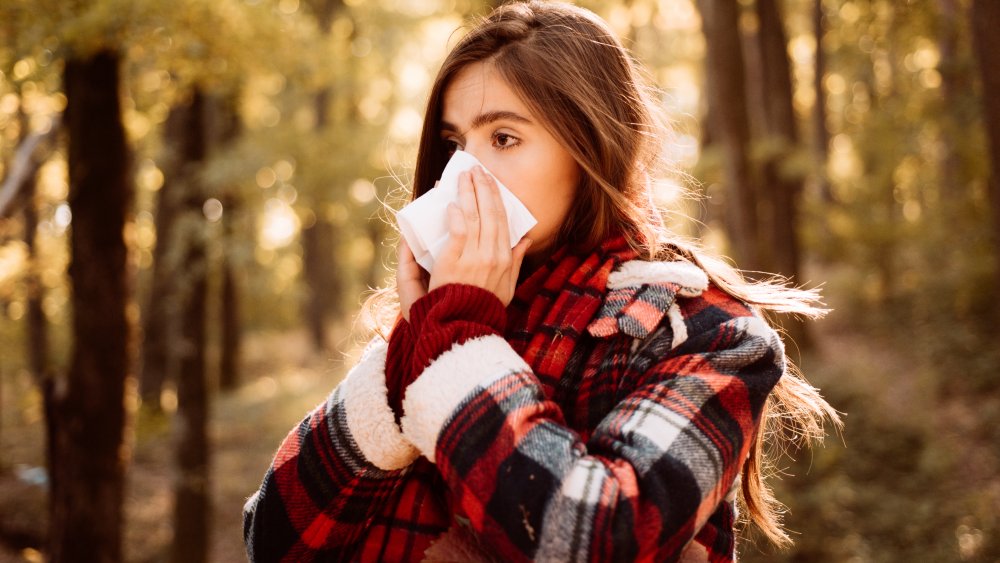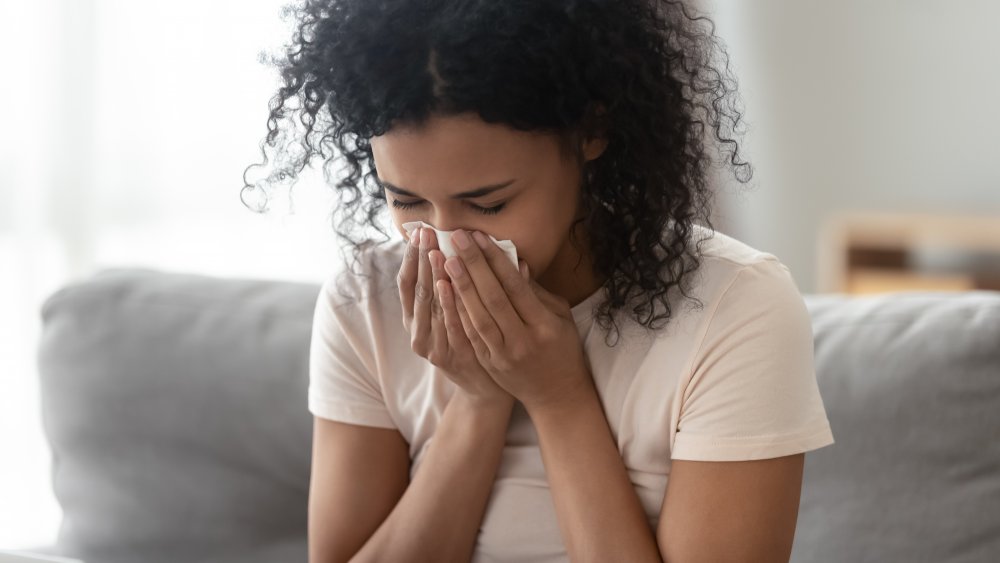The Real Difference Between Fall Allergies And COVID-19
Remember the days when someone would sneeze, and we'd all respond with, "Bless you" or "gesundheit?" Now, when we hear the sound of germs projecting from someone's nose, sometimes we forget our manners, anxiously checking that our face masks are in place. And what a relief it is when the sneezer proclaims, "Don't worry, it's only allergies!"
In truth, sneezing is one of several symptoms of allergies that can seem like it's also a COVID-19 symptom. Along with the sniffles, coughing, fatigue, headache, and a sore throat can afflict people who are hypersensitive to pollen — as well as those who've contracted coronavirus, according to the Centers for Disease Control and Prevention. So how do you tell whether it's the 'rona or the ragweed causing your symptoms?
According to internist Dr. Partha Nandi, there are several distinct differences between how coronavirus and seasonal allergies present. "First of all, if you're running a temperature, it's not allergies," he told Detroit ABC News affiliate WXYZ. "A fever is typically one of the first symptoms of coronavirus. Another telltale sign that it's not allergies? Having diarrhea. And, keep in mind, COVID-19 tends to affect the entire body, while allergies do not."
Meanwhile, there are allergy symptoms that haven't been attributed to coronavirus, Nandi added. "On the flip side, sneezing and itchy eyes, nose, throat, and ears can likely be attributed to environmental allergies," he said.
Fall allergies tend to happen every year, and last much longer than coronavirus symptoms
In addition, you can figure out whether you're dealing with fall allergy symptoms or a potential coronavirus infection by thinking about your history; most people suffering from fall allergies had the same experience in previous years (per Emerson Hospital). Also consider how long the symptoms have been affecting you. "Typically with coronavirus, the symptoms will last for a couple weeks," Dr. Sandra Hong, an allergist at Cleveland Clinic, told Fox 10. "They can sometimes be lingering, but typically not like allergies where they can be months on end, a whole season."
Also, keep in mind that fall allergies are extremely common; approximately 23 million Americans are allergic to ragweed, the most common cause of fall allergy symptoms, according to the Asthma and Allergy Foundation of America. What that means is that you could be suffering from both fall allergy and coronavirus symptoms at the same time. Talk about a double whammy! So if you're experiencing a fever, severe fatigue, headaches, or other classic COVID-19 symptoms, don't hold off on contacting your doctor and getting tested just because you've also got itchy eyes and a history of seasonal allergies.


